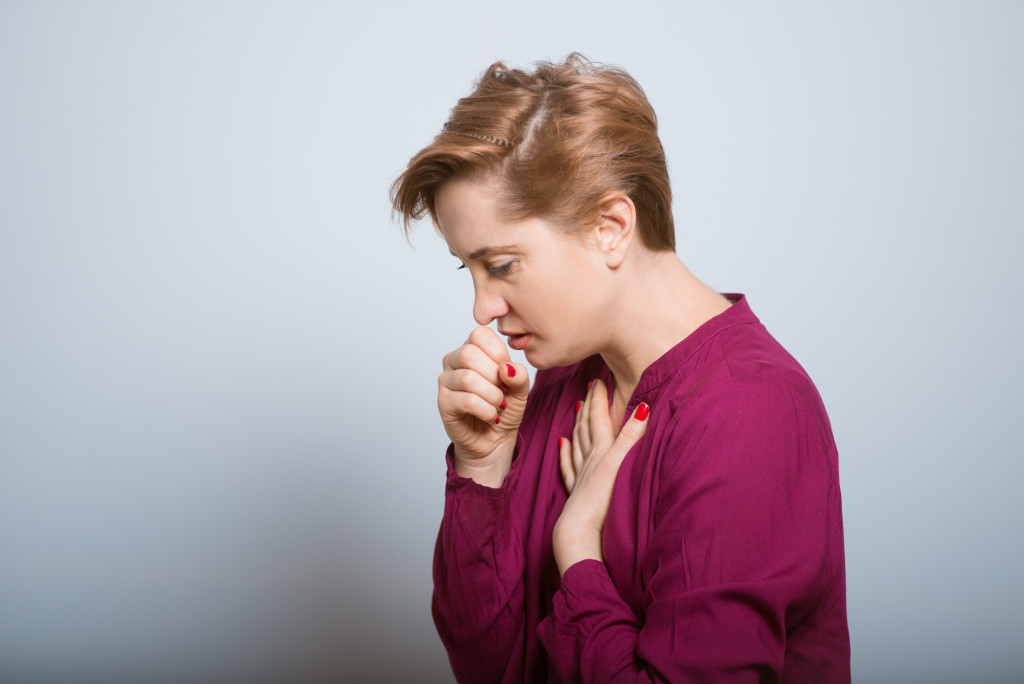We have not fully arrived at a point wherein there is a clear-cut treatment for COVID-19 disease. That is why many of our current treatments only include supportive care and management. Thankfully, an overwhelming majority of cases only often fall under the mild category and even asymptomatic ones, especially if the person who contracted the virus is vaccinated.
If you live alone and find yourself contracting COVID-19, here are some tips for caring for yourself if you are asymptomatic or only have mild symptoms.
Stay home
If you are asymptomatic or have mild symptoms, it’s tempting to go about your business like nothing’s wrong. But you can still pass on the virus to others who may not have as strong of an immune system as you do.
In solidarity with your community, follow the guidelines set by the United States Centers for Disease Control and Prevention (CDC) about what you should do once you test positive. That includes staying home and keeping a safe distance from others until you reach the fourteen-day quarantine period.
If anyone were to visit you, make sure to wear your mask around them and ask them to do the same. Having pets around also entails you having to wear a mask around them as well.
List down your symptoms per hour
Health guidelines vary from state to state, and you can also ask your doctor about it, but you can say that your first day of having the disease is the day you had your test done. From then on, that’s when you can start the fourteen-day count to see if your symptoms get better or worse.
Keep a notebook near you at all times so you can record what symptoms you feel and experience throughout your quarantine. This will help you track and eventually explain to your physician the trajectory of your illness so that they can be more informed in making decisions for your medical care.
Keep in touch with your doctor

Even if your symptoms are mild and you can manage to stay home instead of a hospital, keep your doctor posted on your current condition. You never know when your symptoms can worsen at the drop of a hat, especially since patients have reported suddenly feeling ill five to ten days into the illness. Giving your doctor daily reports, especially if you experience shortness of breath or difficulty breathing. That is crucial since they may be a sign of pneumonia, and you might need to be rushed to a hospital soon or get an X-ray.
Build healthy habits
Now that you’re in self-quarantine, now is the best time to build healthy eating habits, especially if you have neglected your nutrition for a while now. Here are some healthy foods you need to incorporate into your daily meals:
- When you have COVID-19, proper hydration is crucial. Drinking enough water is essential, especially if you have a fever or diarrhea. Some drinks and fluids that you need to prioritize include water, broth, seltzer, honey tea, juice, and electrolytes. Honey lemon tea, in particular, helps in soothing cough and sore throat. Add some ginger for good measure, too. Coconut water, sports drinks, and maple water are also good electrolyte drinks.
- When you have flu-like symptoms, certain nutrients like vitamins A, C, D, and E and protein and zinc can help boost your immune system. Don’t start taking your vitamins through pills unless your doctor recommended them; get your nutrients through yummy and healthy meals. Some examples include yogurt smoothies with fruit, especially if you don’t have the appetite. Chicken soup is also known for being beneficial when you have a respiratory infection.
- Avoid overly acidic foods and junk foods like chips, soft drinks, and fast food during your fourteen-day quarantine.
Take as much rest as you can
When it comes to physical activity, experts recommend that COVID-positive patients take it easy while in quarantine. This is because any exercise that’s more strenuous than a brisk walk could affect your immune system. While people have different experiences with COVID-19, it might be safest for you to forego exercise at least a week after testing positive, even if you are asymptomatic.
Ride it out
For many, a case of COVID-19 will just come and go without a hitch. If you are one of those lucky people, take the fourteen-day quarantine period as a time to give yourself a break. When doing so, you can also provide your mind with the time to reflect on your situation. Good luck and get well soon!


